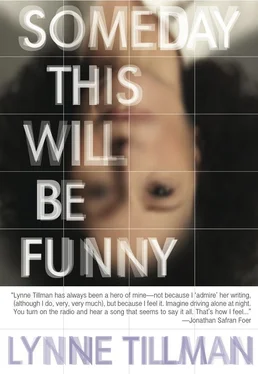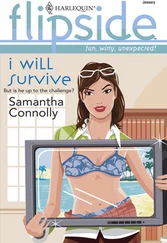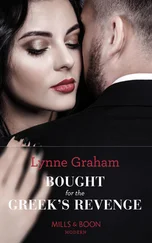“When people used to learn about sex and die at thirty-five, they were obviously going to have fewer problems than people today who learn about sex at eight or so, I guess, and live to be eighty. That’s a long time to play around with the same concept. The same boring concept.” (Andy Warhol)
Dearest,
I don’t think I’ve ever felt this way before, not exactly. Not like this. Is it possible? I thought about you all day, and then in the night too, and I felt I was going to die, because my heart was beating so fast, as if it were a wild bird caged in my chest, flapping its wings madly, trying to escape. Even if my heart were a wild bird, it would fly to you.
Paige wondered if love disinvented, too, undid her and him. She moved from the computer, which seemed now to glower, into the kitchen and walked to the sink and turned on the cold water. She watched the water flow into the teakettle, and then she put the kettle on the stove.
Dearest,
I love you especially when you’re far away. I can feel you most when I don’t see you. I carry you with me because your words carry, they fly, and yet they stay with me, stay close to me, the way you do even when you’re not beside me. To be honest, love, sometimes words are all I need, words satisfy, your words, your words.
“Does that goddess know the words/ that satisfy burning desire?”
(Puccini, Madama Butterfly)
“I can love the other only in the passion of this aphorism.”
(Jacques Derrida)
Paige thought writing might be an act of love, a kind of love affair, or a way of loving. She hoped it was a possibility, because even more, more horribly and wretchedly, she knew that it was also an incessant demand for love, enfeebling and humiliating. Always wanting, writing exposed its own neediness, like unrequited love, which might be the same thing, she wasn’t sure. Except that when her own worthless desires rebuked her, her writing turned derisory, dissolved into worthlessness, and then became transparent.
“My Love is of a birth as rare / As ’tis, for object, strange and high; / it was begotten by Despair / Upon Impossibility.” (Andrew Marvell)
Dearest,
Maybe I’m always writing love, to you. That’s the only way I can love you. What if love, like writing, was a rite enacted and re-enacted, or a habit, or a disguise to cloak a vacant lot near the streetcar named desire. Sometimes I think it would be better to remain silent, to let emptiness, vacancy, and loss have its full, dead weight, and that it would be better to let love and writing go, but, love, I don’t want to stop writing or loving you.
It was nearly night. Paige visited old haunts without going anywhere, and she wallowed in dead loves and called upon memory, which competed with history, dividing her attention. Paige indulged herself, as if eating rich chocolates filled with her romantic past, and looked at pictures of former lovers stuck between pages in journals and albums. She mused and cut hearts out of paper towels, she held up one, then another, to the light. The hearts were large and ungainly, imperfect shapes meant to represent a romance or two or four. What would she write on a cheap paper heart?
“I wrote you in a cave, the cave had no light, I wrote on pale blue paper, the words had no weight, they drifted and danced away before my eyes. I couldn’t give them substance. I could not make them bear down. I keep failing at this poetry, this game of love.”
“O love is the crooked thing/ There is nobody wise enough/ To find out all that is in it…” (W. B. Yeats)
Dearest,
I know you think I have no perspective, and I know without perspective, everything is flat. Our love exists on available surfaces, beds, floors, on tabletops, on roofs. Tell me to stop. I can’t help it, I want more, I want everything now. I love you, silently and stealthily. I love you as you have never been loved. I love you because I cannot love you.
“True hearts have ears and eyes, no tongues to speak; / They hear and see, and sigh, and then they break.” (Sir Edward Dyer)
I love you.
It was just a sentence. Paige was struck by it and, she thought, stuck with it. Three ordinary, extraordinary, diminutive words, I love you, and just eight sweet letters. “O” repeats, oh yes. So little does so much, three little words, three little piggies make a sentence: I love you. The love sentence, arret d’amour.
Dearest,
What if I were sent to love you? What if I were the sentence “I love you”? Do you or I ever think of love as a sentence? I don’t think so, you and I can’t stop to do that, we don’t bother with its syntax, or who is sentenced, and for how long. I think you and I can’t think love at all. I can’t now.
“What voice descends from heaven/to speak to me of love?”
(Verdi, Don Carlos)
“Wild thing, you make my heart sing./ You make everything, groovy./Wild thing, I think I love you./ But I want to know for sure. Come on and hold me tight. I love you.” (The Troggs)
Feeling stupid, Paige tore up one of the hearts. She crumpled the others and looked at the mess. With hardly a second thought, she took each newly crumpled heart and straightened it out, then patted down all of the hearts until they were more or less flat and unwrinkled, and lined them up on the table in front of her like a place mat. Paige smiled at the hearts, paltry emblems of couplings gone. She even liked the hearts better with creases, because she liked her lovers to have lines around their mouths and eyes. So strange to concoct emblems, to want signifiers of old loves, but it was, she thought, stranger not to keep faith with memory and to desire, as obsessively, to forget.
Dearest,
I love you trembles inside me. It trembles and I can feel it just the way I can feel you. You can’t think love, I know you can’t, not when you think about me. I’m the one who loves you, no matter what, and I love you, no matter that I want to take apart “I love you.”
“But, untranslatable,/ Love remains/ A future in brains.” (Laura Riding)
I love you.
What or who is the subject of this sentence, the object or the subject? Love confuses by constructing a subject/object relation that forgets what or why it is — who subject, who object. “You” never refuse “I,” my love.
To Paige, a torn-up heart, its pieces scattered on the table top, represented all the broken hearts, not just hers. There were too many to name and count, countless numbers.
“My first broken heart wasn’t a romance. My heart broke before I even thought about love. It broke when I wanted something and couldn’t have it, and I don’t even remember when or what that was.”
“…When the original object of an instinctual desire becomes lost in consequence of repression, it is often replaced by an endless series of substitute objects, none of which ever give full satisfaction.” (Freud)
Paige worried that memory, like love, was something she couldn’t make decisions about, even when she made sense of the past, or it made some sense to her. Unlike love, memory was constant, and she was never without it. It was holding her hand as she tailored hearts.
Dearest,
I can’t think straight, I can’t do what I’m supposed to do. I can’t eat or write or wash or cry or scream or die or decide, since loving you. Now “I love you” becomes a suffocated gasp, an involuntary gush. When you touch me, I can’t swallow, when you touch me, everything’s a movie, and everything in me moves over to sigh. I gasp, I suffocate, I gush for you. If “I love you” becomes a lament, then I will gag on love and die.
“Know you not the goddess of love/ and the power of her magic?” (Wagner, Tristan and Isolde)
Читать дальше












